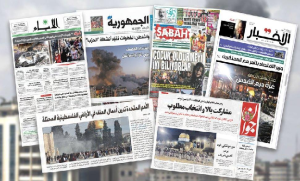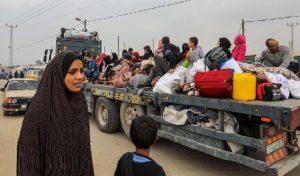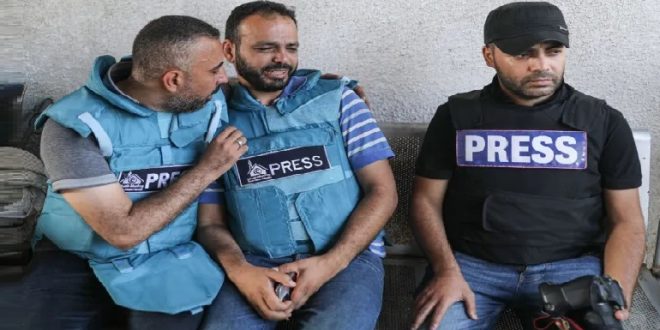19-12-2024
GAZA CITY/ LONDON: Facebook has severely restricted the ability of Palestinian news outlets to reach an audience during the Israel-Gaza war, according to BBC research.
In a comprehensive analysis of Facebook data, we found that newsrooms in the Palestinian territories in Gaza and the West Bank had suffered a steep drop in audience engagement since October 2023.
 The BBC has also seen leaked documents showing that Instagram, another Meta-owned platform increased its moderation of Palestinian user comments after October 2023.
The BBC has also seen leaked documents showing that Instagram, another Meta-owned platform increased its moderation of Palestinian user comments after October 2023.
Meta, the owner of Facebook says that any implication that it deliberately suppressed particular voices is “unequivocally false”.
Since the beginning of the Israel-Gaza war, just a few outside reporters have been allowed to enter the Palestinian coastal territory of Gaza from the outside, and they were only able to do so escorted by the Israeli army.
Social media has filled the gap for those wanting to hear more voices from inside Gaza. Facebook pages for news outlets such as Palestine TV, Wafa news agency and Palestinian Al-Watan News which operate out of the West Bank territory became a vital source of updates for many around the world.
BBC News Arabic compiled engagement data on the Facebook pages of 20 prominent Palestinian-based news organizations in the year leading up to the 7 October Hamas attacks on Israel, and in the year since.
Engagement is a key measure of how much impact a social media account is having and how many people are seeing its content. It includes such factors as the number of comments, reactions and shares.
During a period of war, audience engagement might be expected to rise. However, the data showed a 77% decline after the Hamas attacks on 7 October 2023.
Palestine TV has 5.8 million followers on Facebook. Journalists at the newsroom shared statistics with us showing a 60% drop in the number of people seeing their posts.
 “Interaction was completely restricted, and our posts stopped reaching people,” says Tariq Ziad, a journalist at the channel.
“Interaction was completely restricted, and our posts stopped reaching people,” says Tariq Ziad, a journalist at the channel.
Over the past year, Palestinian journalists have raised fears that their online content is being “shadow-banned” by Meta in other words, restricted in how many people see it.
To test this, we carried out the same data analysis on the Facebook pages of 20 Israeli news organizations such as Yediot Ahronot, Israel Hayom and Channel 13. These pages also posted a large amount of war-related content, but their audience engagement increased by nearly 37%.
Meta has previously been accused by Palestinians and human rights groups of failing to moderate online activity fairly.
An independent report in 2021 commissioned by the company said this was not deliberate but because of a lack of Arabic-speaking expertise among moderators. Words and phrases were being interpreted as offensive or violent, when they were in fact innocuous. For example, the Arabic phrase “Alhamdulillah”, which means “Praise be to God”, was sometimes being auto-translated as “Praise be to God, Palestinian terrorists are fighting for their freedom”.
To see if this explained the decline in engagement with Palestinian outlets, the BBC carried out the same analysis on Facebook pages for 30 prominent Arabic-language news sources based elsewhere, such as Sky News Arabia and Al-Jazeera.
However, these pages saw an average increase in engagement of nearly 100%. (BBC)
 Pressmediaofindia
Pressmediaofindia




